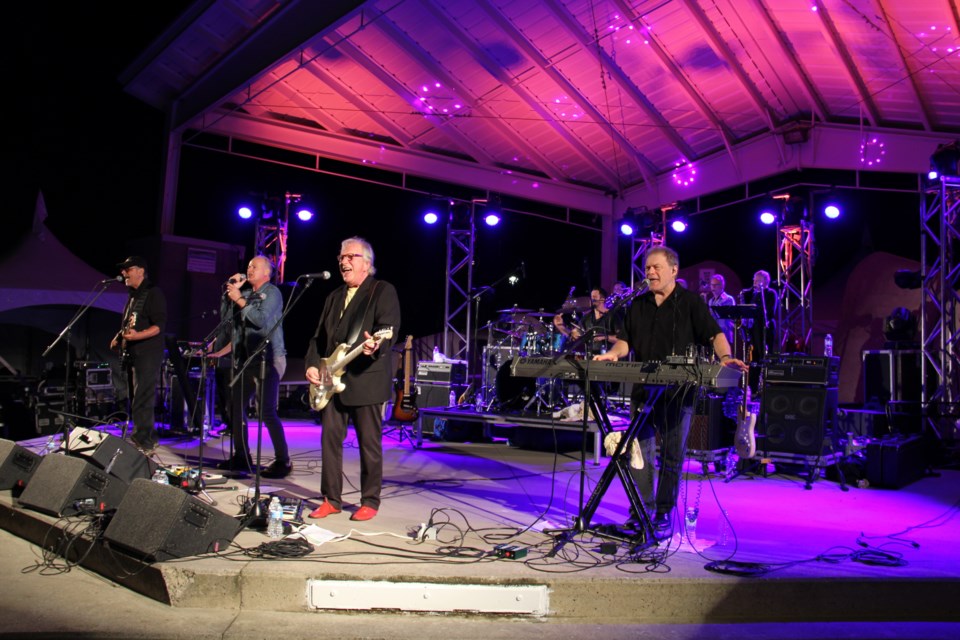The band that rocked us with Sunny Days and One Fine Morning is coming back to North Bay's Capitol Centre Oct. 17.
Canada's Lighthouse is celebrating 50 years as a band by touring and releasing a brand new compilation CD that includes previously unavailable early classic recordings of Eight Miles High, and Chest Fever.
BayToday spoke with Lighthouse co-founder Paul Hoffert in advance of the gig.
Hoffert started the band with famed drummer Skip Prokop in Toronto, and early on they were introduced by Duke Ellington as, "The next big thing in big band rock and roll music."
Success didn't come early or quickly though.
Hoffert was warned by well-known rock manager Albert Grossman (Bob Dylan, Janis Joplin, Gord Lightfoot) that he was crazy and would "lose his shirt" touring with a 13 man band. But the duo soldiered on
Grossman passed on the invitation to manage the band.
"Not only am I not going to manage you but you're crazy, you're making a big mistake and I strongly advise you guys to not do this enterprize because you'll just lose your shirts because it's too expensive to tour."
Luckily that advice was ignored.
"We started doing 200 concerts a year and part of the reason was we just had to feed the machine...the cost of having all that equipment and gear. So we were constantly performing across Canada but also a lot in the United States, Europe, and Asia. Always on the go and that's why there weren't many bands that size."
Their first record deal with RCA was for a million dollars and the first three albums sold reasonably well.
"But considering the huge amount of money, in fact, the cost of keeping Lighthouse together when we started it was close to a million dollars a year so we had to be working all the time and we didn't sell enough records to justify a record company keeping us, so they dropped us after the first three albums in the first year."
The band was wildly popular, but the reason Lighthouse records weren't big sellers was that they contained so many long instrumental solos. In those days FM had not yet taken hold so to get sales you had to get records played on AM radio which wanted records about 2 1/2 minutes long, not six or seven.
"We didn't get any airplay," Hoffert told BayToday. "So we made a change in the band. We had trouble getting our second record deal because we didn't have any hits."
An outside producer, Jimmy Ienner, read the band the riot act, saying it wasn't sustainable without AM airplay.
"We all started writing music that was more hit oriented. Skip just started cranking out those hits like One Fire Morning, Sunny Days, Pretty Lady. and Hats off to the Stranger. And once we started being played on the radio everything changed and here we are 50 years later."
Hoffert admits that audiences know the band mostly from their radio hits.
"But once we play live in places like North Bay, the great thing is we get a chance to stretch out and do all those longer solos that we couldn't put on the early records."
These days Hoffert is grateful for his band's longevity.
"I never, ever imagined that Lighthouse would be a defining part of my life and last for decades. In fact, it was just a fun little thing, 'Lets put together a rock and roll band,' get onstage, get applause, get the adoration of the crowd and be able to pursue my passion, which is music, and share it with the people in the audience who would like it. How lucky was I and my bandmates to find an audience that provided the fuel that fed us and kept us going."
Nowadays, nobody in the band needs to continue playing, but they love performing for live crowds.
"Coming to great places like North Bay means a lot of travel time and the old bones get a little creakier every year, but as soon as we hit the stage and we look out at the audience, man it's fantastic. So certainly, I never thought that I or our music would have such longevity. We're all very thankful for it every day that, how lucky we are that we can go on stage and do what we love and meet great people."
Lighthouse returns to the stage at the Capitol Centre Thursday (Oct. 17) at 7:30.
"When the band heard about Leonard Cohen's passing, we decided to honour him by recording the song that he'd so obviously loved. Mega award-winning producer Bob Ezrin saw the video, also loved it, and offered to produce the recording at Noble St. Studios in Toronto."
